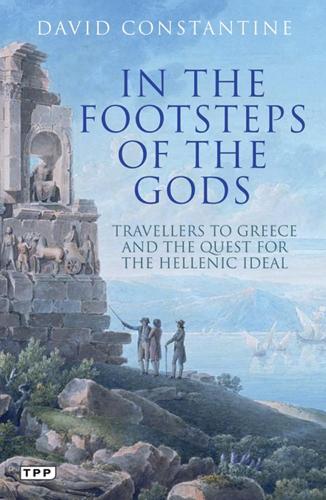Overview
Gladiators and goddesses, philosophers and poets, epic battles and romantic landscapes - the classical world has for centuries captivated and inspired the west. But what provoked the shift from the western world's love-affair with classical Rome and its manifestation in the Renaissance, to the Hellenic world? The decisive switch in focus and taste from Rome to Greece began in the 17th century, when a succession of travellers - mainly from France and England - journeyed to Greece and what is now Turkey and rediscovered the Hellenic world. In the Footsteps of the Gods traces the ways in which the constantly changing ideal image of ancient Greece, its art, politics and culture, inspired those who travelled there. With lively accounts of their adventurous journeys and vivid descriptions of what they saw, discovered, collected and published about the remains of ancient Greece, it reveals the extraordinary effects that these travellers' accounts had on the poets and scholars of the west, who in turn were influential in creating the idea and ideal of Greece, which became such a powerful force in the arts and politics of the 18th and early 19th centuries. At the heart of the book is, in the words of the classicist, Richard Stoneman, 'a poet's vision of Greece'.
Full Product Details
Author: David Constantine
Publisher: Bloomsbury Publishing PLC
Imprint: I.B. Tauris & Co. Ltd.
Dimensions:
Width: 12.90cm
, Height: 2.30cm
, Length: 19.80cm
Weight: 0.277kg
ISBN: 9781848855458
ISBN 10: 1848855451
Pages: 256
Publication Date: 18 January 2011
Audience:
General/trade
,
General
Format: Paperback
Publisher's Status: Active
Availability: In Print

This item will be ordered in for you from one of our suppliers. Upon receipt, we will promptly dispatch it out to you. For in store availability, please contact us.
Reviews
'In his excellent study, David Constantine traces the course of Europe's discovery of Greece in the seventeenth and eighteenth centuries. He not only captures the pioneering excitement but makes an interesting contribution to the history of ideas. A worthy and delightful celebration of the Hellenic Ideal in its many guises.' - William St Clair, TLS; 'Fulfils an important function in establishing the interconnection of early travel publications and the development of the sentimental admiration and idealisation of Greek antiquity.' - The Greek Gazette; 'An eloquent defense of the ideal to which the travellers bore witness: Accurate knowledge is not detrimental to true love...A single column is like a basic unit of aesthetic pleasure... why should not the imagination love precision? ' - Christian Science Monitor; 'Constantine's lucid account is to be praised not only for its informative quality but also for effectively capturing the spirit of the various undertakings and shifts in response to the classical world.' - Modern Language Studies
<p> The hidden centre of the book is a poet’s vision of Greece…  -- Richard Stoneman, History Today <p> An eloquent defense of the ideal to which the travelers bore witness: 'Accurate knowledge is not detrimental to true love… A single column is like a basic unit of aesthetic pleasure… why should not the imagination love precision?' -- Christian Science Monitor
'In his excellent study, David Constantine traces the course of Europe's discovery of Greece in the seventeenth and eighteenth centuries. He not only captures the pioneering excitement but makes an interesting contribution to the history of ideas. A worthy and delightful celebration of the Hellenic Ideal in its many guises.' - William St Clair, TLS; 'Fulfils an important function in establishing the interconnection of early travel publications and the development of the sentimental admiration and idealisation of Greek antiquity.' - The Greek Gazette; 'An eloquent defense of the ideal to which the travellers bore witness: Accurate knowledge is not detrimental to true love...A single column is like a basic unit of aesthetic pleasure... why should not the imagination love precision? ' - Christian Science Monitor; 'Constantine's lucid account is to be praised not only for its informative quality but also for effectively capturing the spirit of the various undertakings and shifts in response to the classical world.' - Modern Language Studies
Author Information
David Constantine was for thirty years a university teacher of German language and literature. He has published several volumes of poetry, including Nine Fathom Deep; also a novel, Davies, and three collections of short stories, including The Shieling. He is a translator and editor of Holderlin, Goethe, Kleist and Brecht. His translation of Goethe's Faust was published by Penguin. With his wife Helen he edits Modern Poetry in Translation.




